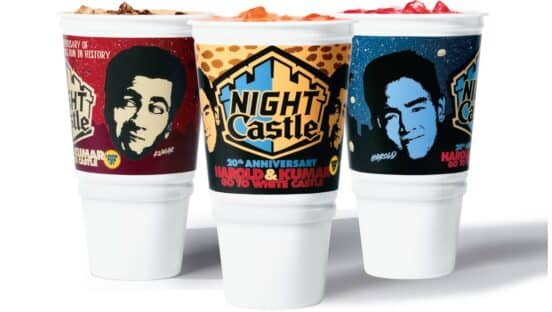An open letter to Merriam Webster that was published in a trade publication last week, McDonald’s Chairman and CEO, Jim Cantalupo, offered a strong response to the dictionary’s decision to include “McJob”as a term for low-paying dead-end jobs in the entire restaurant world. The letter was also e-mailed to the worldwide McDonald’s family and struck a chord with our employees at every level, according to Walt Riker, vice president of corporate communications for McDonald’s.
”Hundreds of e-mails are coming to Jim to thank him for setting the record straight about restaurant work and the limitless opportunities that come with it,” says Riker.
Below is a copy of the letter sent to Merriam-Webster:
An open letter to Merriam-Webster, Inc.>
From Jim Cantalupo, Chairman & CEO, McDonald’s Corporation
A dictionary is usually considered a reliable source for the true meaning of words.
Not any more. Your inclusion of the term “McJob”, with its definition of “low paying and dead end work “, is not only an inaccurate description of restaurant employment, it’s also a slap in the face to the 12 million men and women who work hard every day in America’s 900,000 restaurants.
Moreover, your attempt to prove that “McJob” is a well-understood part of the nation’s vocabulary is utterly unconvincing. First, let’s get to some accurate definitions. Restaurant employees are proud of their jobs and recognize that restaurants are indeed gateways to opportunity, not to mention the paychecks they provide.
According to the National Restaurant Association, restaurants are the nation’s largest private-sector employer, offering all kinds of positions in a variety of fields, providing quality jobs for nearly 9 percent of those employed in the United States–for a year or a career.
In fact, salaries for food-service managers are growing at a rate twice as fast as the median salary for all managerial positions in the U.S. The NRA says that nine out of ten salaried restaurant workers started as hourly employees. This good news is in sharp contrast with Merriam-Webster’s “dead end” conclusions. Frankly, it was disappointing to see Nation’s Restaurant News include “McJob” in a recent headline over a story about employment.
On behalf of every individual who proudly waits a table, cooks the food, washes a dish, or seats a party at an American restaurant, let’s agree to stop giving this term any more exposure.
Meanwhile, at McDonald’s, a more appropriate definition of a “McJob” might be “teaches responsibility.” Young people learn what it takes to succeed. They learn how to interact with customers, how to prepare food properly, the importance of cleanliness, the value of showing up on time and what it means to work as an integral member of a team. They learn to take pride in their work. And, as these young people gain valuable experience and confidence in their own ability, they learn leadership and management skills that can last a lifetime.
In fact, McDonald’s trains more young people than America’s Armed Forces. This training brings real opportunity to our restaurant managers and crew employees. More than 1,000 of the men and women who own and operate McDonald’s restaurants today got their start by serving customers behind the counter. Keep in mind the typical McDonald’s franchisee in the U.S. owns four restaurants, each one representing annual sales of $1.6 million.
Those high volume restaurants also need well-trained, smart and motivated people to run them, so tens of thousands of managers help keep these small businesses humming, a salaried job that usually began with, you guessed it, a first-time job behind the counter .But when it comes to opportunity, the sky’s the limit at McDonald’s.
Many members of our top management team began their McDonald’s career working as crew employees in our restaurants. Charlie Bell, McDonald’s President and Chief Operating Officer, began his McDonald’s career at15 in Australia. Mats Lederhausen, President of McDonald’s Business Development Group started with McDonald’s as crew in Sweden. Claire Babrowski, President of McDonald’s Asia-Pacific Middle East Africa Group, Lynn Crump-Caine, Executive Vice President of McDonald’s Worldwide Operations and Eduardo Sanchez, President of McDonald’s Latin-America and Canadian Group all began their McDonald’s careers as crew employees in their hometowns. And Fred Turner, McDonald’s Senior Chairman, was Ray Kroc’s first grill man!
But McDonald’s is also a great place to work for reasons beyond potential advancement. Take Clare Kimmerle, at a youthful 79, she has proudly worked at the McDonald’s restaurant near her home in Southampton, Pennsylvania for more than 30 years. Why? Because she loves it.” I like to work. I like people,” she says. Clare is a wonderful representative of the more than 1.5 million proud McDonald’s employees in 119 countries.
Additionally, FORTUNE magazine just came up with yet another definition of jobs at McDonald’s ” America’s best place to work for minorities. Best place! Will Merriam-Webster include this definition for its readers?
Furthermore, McDonald’s owns a federal trademark registration for the mark McJOBS. It refers to a program designed to help train and place mentally and physically challenged people so they can work. Many of these people have been able to lead happier and more productive lives because of our program. Your dismissive definition of “McJob” undermines the great strides that men and women with physical and mental challenges have made in our restaurants, and the skills and independence that the McDonald’s McJOBS Program has helped foster for more than 20 years. The people who have participated in McDonald’s McJOBS Program deserve our respect and admiration. We are proud to help enrich their lives. Merriam-Webster’s unflattering definition flies in the face of their achievements and significance to the workforce.
Finally, we have reviewed your would-be proof that “McJob” is part of America’s vocabulary and, frankly, there isn’t much there. You base your proof on an Internet search, which dug up a scattering of references from assorted academics, pundits, and random news stories over a 15-year period. You also told us Merriam-Webster had no choice but to include “McJob” because another dictionary had; that’s followship not leadership. Well, McDonald’s has far more credible sources. Our daily, face-to-face conversation with 47 million customers, and we aren’t hearing any “McJob” talk. And we doubt anyone else does except where it is fashionable to belittle anyone who works in a restaurant.
So you can see why your definition is completely inappropriate and absolutely demeaning for all the dedicated men and women who have been, or are currently employed in a restaurant. This includes teens getting their first employment experience, to parents supporting a family, seniors supplementing their income and achieving greater purpose and fulfillment, persons with disabilities entering the workplace, and 900,000 restaurants nationwide employing millions and millions of people from local communities. In other words, restaurant jobs are valued and valuable.
In the interest of accuracy, fairness, and to better serve your readers, we are confident Merriam-Webster will eliminate your inaccurate definition of restaurant employment in the next edition, and on your Internet site right now.









